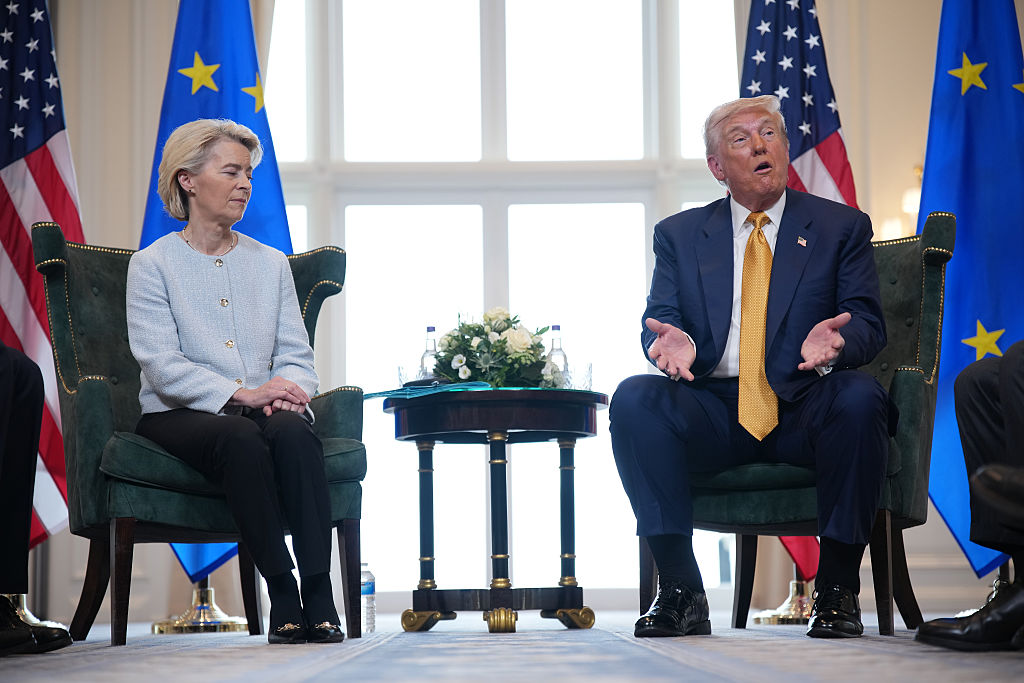The EU is justly proud of the liberal democracies it nurtured as it expanded beyond its original founding members. Greece, Spain and Portugal shed their authoritarian pasts and evolved into vibrant if fractious democracies. The one-party states of Eastern Europe became stable democracies thanks to copious aid and tutelage from Brussels. The EU rightly judges liberal democracy superior to its authoritarian competitors: The prosperity, personal freedoms and quality of life enjoyed by its 450 million citizens exceed that of Russia, China or any of the other dictatorships around the world. A core strength of liberal democracy is its capacity to internalise rebellion: Elections and parliamentary negotiations are non-violent, rule-based contests over political power. When incumbents screw up (and they always do in the end), voters not revolutionaries replace them. Failed elites are free to regroup, listen to the voters, and reclaim power once their successors wear out their welcome.
That’s the theory of democratic resilience, anyway.
Unfortunately, the EU and its member states seem intent on crippling these essential, self-correcting aspects of liberal democracies. If elections are to internalise non-violent rebellion, they must serve as legitimate contests over power and policies. If unpopular policies are insulated from electoral rebuke by blocking opposition parties from gaining power, democracy itself loses legitimacy and in its most fundamental sense has failed. The firewall against Germany’s AfD has only increased the discontent of its supporters, who rightly accuse the centrist parties of conspiring against giving their complaints any traction in the Bundestag. What are the sins condemning the AfD to this illiberal quarantine? Opposition to the migration of millions of young men ill-equipped and often unwilling to assimilate into German society? Anger at a Net Zero agenda that has crippled German industry? Concern that an open-ended proxy war with Russia will lead to another million casualties with no plan for victory or even peace? Aren’t these legitimate arguments worthy of political contestation in a liberal democracy? The fact that the electorally-crippled Social Democrats have a bigger voice in Berlin than what polls suggest is now the most popular party in the country shows how the firewall has warped German democracy into a centrist protection racket.
A more insidious firewall has been imposed on public opinion. Across Europe, opinions deemed misinformation, harmful or simply insulting to public figures have been criminalised. Who knew that European politicians had thinner skins than Donald Trump, who endures daily insults that would be legally actionable in Germany? An angry tweet over migrant crime can lead to prosecution. Expressions of national pride are considered evidence of extremism. Now that social media has become the new public square, the EU along with most of its member states are determined to define what opinions are acceptable, which are, not surprisingly, only those that further the electoral fortunes of the traditional centrist parties. The EU will fund a group of pet non-profits who will monitor social media for potential violations of its Digital Services Act. You may guess that their recommendations will be more loyal to their paymasters in the Berlaymont than to the principle of free speech. Of course, while any teenager with a VPN can easily circumvent a gaggle of clumsy non-profits, the intended effect is to constrain public discourse, neuter criticism of official policy, and create a meek citizenry fearful of state surveillance. In short, a new Berlin Wall separating the opinions of Europeans from their right to express them publicly.
Why would European leaders connive in thwarting the legitimate grievances of their people? In large part because the EU has changed the sources of legitimacy for these leaders. Whereas a national electoral mandate was once the only source of political legitimacy, most European leaders now look to Brussels, which offers a countervailing legitimacy supposedly superior to tawdry national politics. In exchange for loyalty to the great European project, Brussels offers cash and the tantalising prospect of a cosy sinecure as the capstone to a political career. What small state politician doesn’t dream of life in Brussels, far removed from constituent complaints and the constant threat of elections that can end a promising career in a single night? Pleasing the Commission and gaining the approval of one’s prospective peers in Brussels is more important than tending to the unending demands of one’s constituents. Curtailing the impact of their votes by ruling populist parties out of bounds and restricting their opinions to ones showing proper respect for the EU’s power vertical bolsters the primacy of Brussels as the source of political legitimacy. One can see this dynamic in Ireland, where a populace outraged by lawless migrants and the vast public monies devoted to their care is overruled by politicians eager to prove their European bona fides, with an eye on a plum job in the Quartier Européen.
Removing the means by which liberal democracy is resilient – free contests and free speech – risks destabilising it altogether. In the end, the lowly citizenry will have its say, either at the ballot box or through active non-compliance with or even open defiance of their political masters. Would European leaders rather have raucous debates in national Parliaments or open riots on the streets? Europe is facing a bleak era of industrial retrenchment, fiscal calamity, and demographic decline. All will require tough decisions that can be implemented only if they enjoy a true democratic mandate. Can Europe really afford to alienate its voters from liberal democracy by curtailing their capacity to criticize and replace their leaders? Can the EU long survive if it becomes a conspiracy against the popular will and free speech? Brussels lives inside a comfortable bubble and quite naturally resents the capacity of democracy to burst that bubble. Accepting that voters may wish to constrain or even reverse some of the EU’s pet projects may be anathema to Euro-federalists, but will be a price a functioning liberal democracy must pay to preserve its legitimacy.





€800bn arms without armies? All dead steel and no soldiers